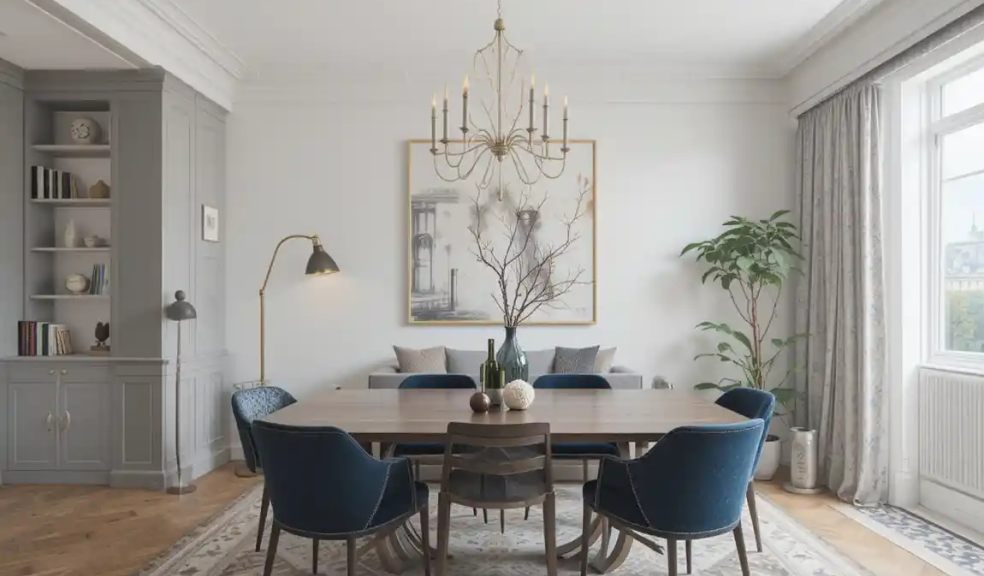
Common Mistakes in Flat Renovation to Avoid
Renovating a flat can be both exciting and overwhelming. Whether you’ve just purchased a fixer-upper in need of love or want to modernise your current space, a well-executed renovation can transform your living environment and significantly boost property value. But without careful planning, even the most promising projects can turn into expensive, time-consuming nightmares.
To help you get it right the first time, here are the most common mistakes in flat renovation to avoid—and how to ensure your project runs smoothly from start to finish.
1. Jumping in Without a Solid Plan
Many flat owners dive straight into renovations with vague ideas and mood board images, but without a detailed plan. This lack of preparation often leads to costly changes mid-project, mismatched styles, and unfinished tasks.
Before swinging a hammer, make sure you have:
- A clear design vision based on your lifestyle and needs.
- A realistic budget that includes a contingency fund for surprises.
- A timeline that accounts for potential delays.
Remember: in flat renovations, space is often limited, so every square metre should have a purpose.
2. Underestimating the Budget
Flat renovations almost always cost more than expected. Owners often budget for visible upgrades like flooring, paint, or fixtures, but forget hidden costs such as:
- Building management fees for works approval.
- Waste disposal and skip hire.
- Temporary accommodation if the renovation makes the flat unliveable.
Adding at least 15–20% to your budget as a safety net can help prevent financial stress if things don’t go exactly to plan.
3. Ignoring Building Regulations and Lease Restrictions
One of the most common—and costly—mistakes in flat renovation is failing to check the building’s regulations or lease agreement. Many blocks of flats have strict rules about:
- Noise restrictions and permitted working hours.
- Structural changes (e.g., removing walls).
- Flooring materials to reduce noise transfer.
Failing to comply could result in legal action, fines, or having to undo completed work. Always get written approval from the freeholder or building management before starting.
4. Choosing the Wrong Contractor
Picking the cheapest contractor without thorough research is a risky move. A low quote might mean the contractor is cutting corners or using substandard materials.
When hiring, prioritise:
- Experience in working on flats, which often have tighter access and stricter regulations.
- Positive reviews or recommendations.
- Full insurance and relevant certifications.
- Transparency in quoting and timelines.
If you’re seeking expert guidance, experienced providers such as Chaboun Construction apartment refurbishment in London can help navigate the unique challenges of renovating flats in the city.
5. Overlooking Space Constraints
Unlike houses, flats typically have less square footage, which means poor layout decisions can waste valuable space. Avoid:
- Installing oversized furniture or fittings that make rooms feel cramped.
- Blocking natural light with heavy partitions or dark finishes.
- Ignoring vertical space for storage solutions.
Smart design—like built-in wardrobes, fold-away furniture, and open shelving—can make even the smallest flat feel spacious.
6. Sacrificing Function for Style
It’s easy to get caught up in making your flat Instagram-worthy, but aesthetics should never come at the expense of practicality. Common functional mistakes include:
- Placing kitchen appliances in awkward positions.
- Using slippery tiles in bathrooms.
- Choosing materials that are hard to clean in high-traffic areas.
Form and function should go hand in hand for a successful renovation.
7. Neglecting Soundproofing
In flats, noise can be a major issue—both from neighbours and for neighbours. Many renovators overlook the importance of sound insulation, only to regret it later.
Consider adding:
- Acoustic underlay beneath flooring.
- Soundproof plasterboard on shared walls.
- Sealing gaps around doors and windows.
These measures not only improve comfort but can also add value to your property.
8. Forgetting About Ventilation
Flats can be more prone to condensation and poor air circulation, especially in older buildings. Neglecting ventilation during a renovation can lead to damp problems, mould growth, and poor indoor air quality.
Make sure you:
- Install extractor fans in kitchens and bathrooms.
- Consider trickle vents for windows.
- Use breathable wall finishes where possible.
9. Doing Too Much Yourself
While DIY can be rewarding for small jobs, major renovation work—especially involving electrics, plumbing, or structural changes—should be handled by licensed professionals. Poor workmanship can compromise safety, fail building inspections, and reduce your flat’s value.
If you want to be hands-on, stick to safe, cosmetic tasks like painting, assembling furniture, or styling.
10. Overlooking Energy Efficiency
Renovation is the perfect time to improve your flat’s energy performance. Yet many renovators focus solely on aesthetics and miss the chance to reduce future bills.
Energy-efficient upgrades could include:
- Double- or triple-glazed windows.
- LED lighting throughout.
- Insulating walls, ceilings, or floors where possible.
These changes not only save money but also make your flat more appealing to eco-conscious buyers or tenants.
11. Not Considering Resale Value
If you plan to sell your flat in the next few years, remember that overly personalised designs may limit your buyer pool. That bright purple kitchen or ultra-niche bathroom layout might suit your taste, but could be a deal-breaker for potential buyers.
Opt for a neutral, timeless base design, and express personality through easily changeable elements like paint colour, décor, and soft furnishings.
12. Poor Communication with Contractors
Misunderstandings can delay projects, increase costs, and create tension. Keep communication clear and consistent by:
- Putting all agreements and changes in writing.
- Holding regular progress meetings.
- Asking for updates on delivery dates for materials.
A little extra effort in communication can prevent big headaches later.
13. Forgetting to Plan for Waste Removal
Renovations produce a surprising amount of debris. In flats, where space and access can be limited, waste removal needs to be planned. Check:
- Whether your building has restrictions on skip placement.
- If contractors will handle waste removal.
- How materials will be transported in and out without damaging communal areas.
Bringing It All Together
Flat renovations require a careful balance of creativity, compliance, and practicality. By avoiding the mistakes above, you can save time, money, and stress—while creating a space that’s both beautiful and functional.
If you’re planning a project and want to avoid costly missteps, working with a specialist in apartment refurbishment London can make all the difference. From navigating lease restrictions to maximising space and energy efficiency, an experienced team can ensure your renovation runs smoothly from start to finish.
A well-planned renovation isn’t just about improving your flat—it’s about enhancing your quality of life and boosting long-term property value. Take the time to get it right, and your investment will pay off for years to come.



















